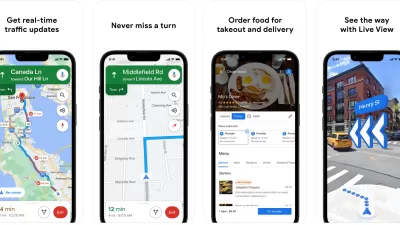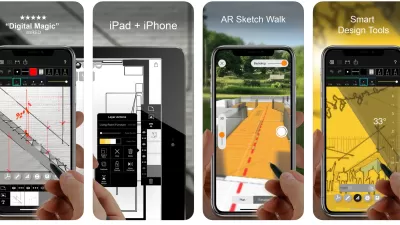It used to be that visibility was the most important factor in siting a business. This may no longer be the case, argues Kevin Klinkenberg, as smartphones make location irrelevant.
It used to be that visibility, whether along a commercial strip to be seen from a car, or on main street to be seen by a pedestrian, was one of the precious rules of retailing, and, as a result, was one of the main components that determined the value of real estate.
However, according to Klinkenberg, "That world that we've all become familiar with in planning and development appears to be on the verge of turning upside-down. In the new world of commerce, every business drives people to their stores with Facebook pages, reviews on Yelp and Urbanspoon, and specials via Twitter. A plethora of smart phone apps can easily lead you to any category of business. Food trucks in many cities even change their locations daily, and tweet them to their thousands of followers."
"I no longer need to walk or drive by a business to know it's there – I simply need to access its location on my phone, and follow the GPS-enabled map to get there."
"How," Klinkenberg asks, "will this technological change impact how we use our cities and towns, and how real estate is valued?"
FULL STORY: Will SmartPhones make location irrelevant?

Maui's Vacation Rental Debate Turns Ugly
Verbal attacks, misinformation campaigns and fistfights plague a high-stakes debate to convert thousands of vacation rentals into long-term housing.

Planetizen Federal Action Tracker
A weekly monitor of how Trump’s orders and actions are impacting planners and planning in America.

San Francisco Suspends Traffic Calming Amidst Record Deaths
Citing “a challenging fiscal landscape,” the city will cease the program on the heels of 42 traffic deaths, including 24 pedestrians.

Half of Post-Fire Altadena Home Sales Were to Corporations
Large investors are quietly buying up dozens of properties in Altadena, California, where a devastating wildfire destroyed more than 6,000 homes in January.

Opinion: What San Francisco’s Proposed ‘Family Zoning’ Could Really Mean
Mayor Lurie is using ‘family zoning’ to encourage denser development and upzoning — but could the concept actually foster community and more human-scale public spaces?

Jacksonville Launches First Autonomous Transit Shuttle in US
A fleet of 14 fully autonomous vehicles will serve a 3.5-mile downtown Jacksonville route with 12 stops.
Urban Design for Planners 1: Software Tools
This six-course series explores essential urban design concepts using open source software and equips planners with the tools they need to participate fully in the urban design process.
Planning for Universal Design
Learn the tools for implementing Universal Design in planning regulations.
Gallatin County Department of Planning & Community Development
Heyer Gruel & Associates PA
JM Goldson LLC
City of Camden Redevelopment Agency
City of Astoria
Transportation Research & Education Center (TREC) at Portland State University
Jefferson Parish Government
Camden Redevelopment Agency
City of Claremont





























